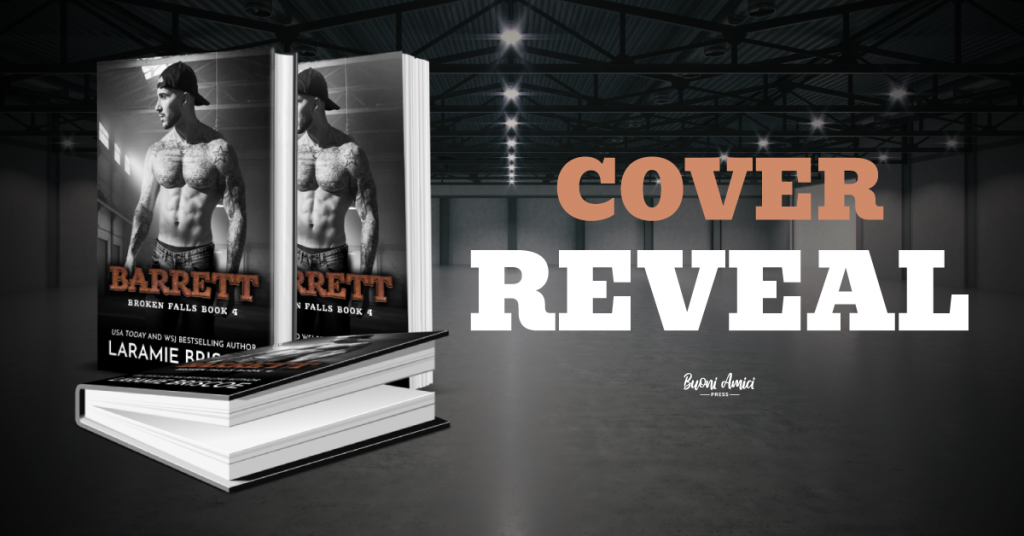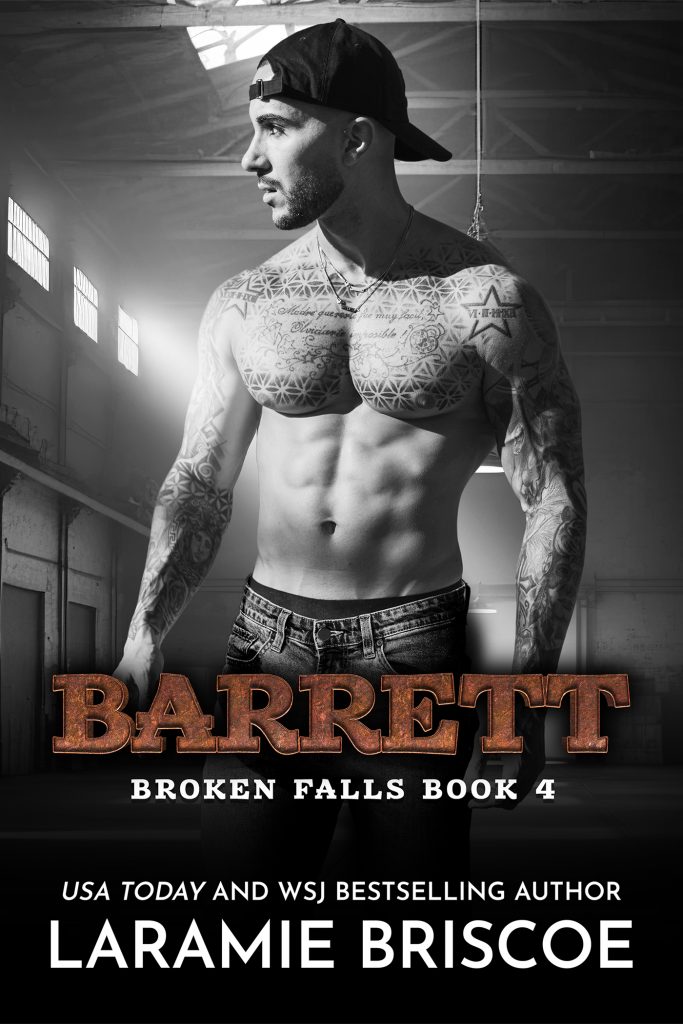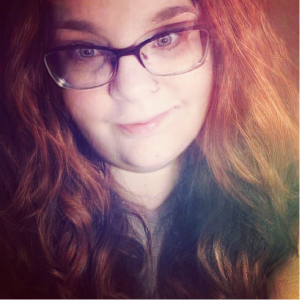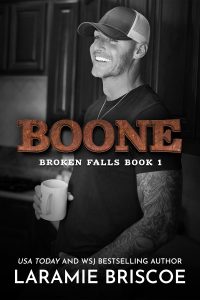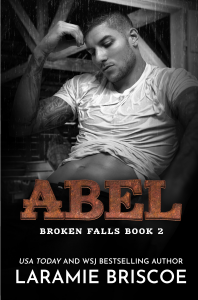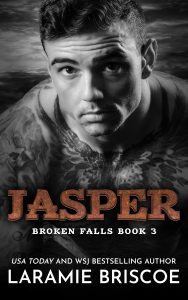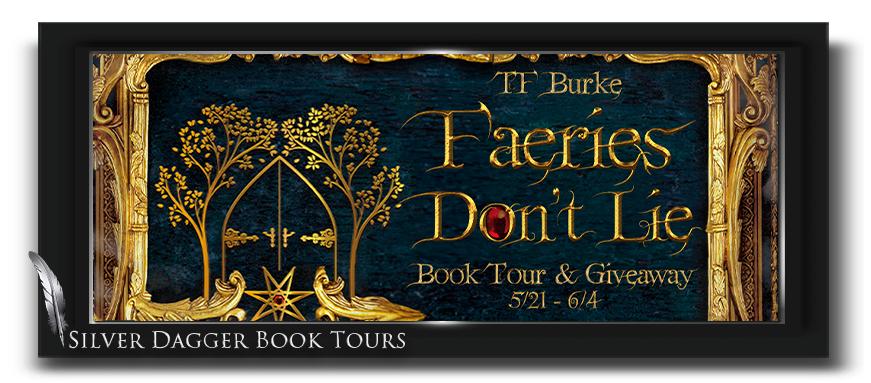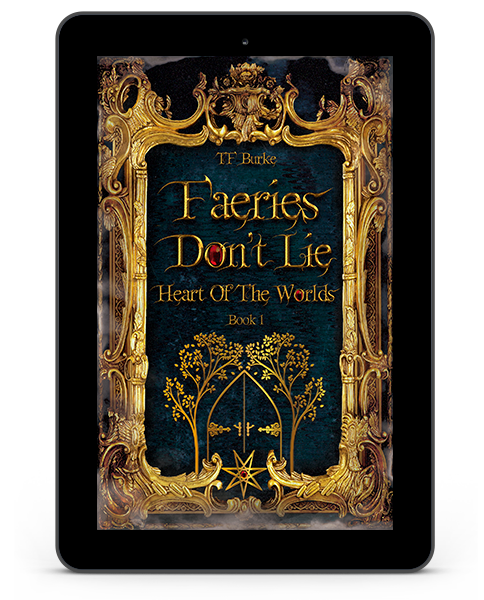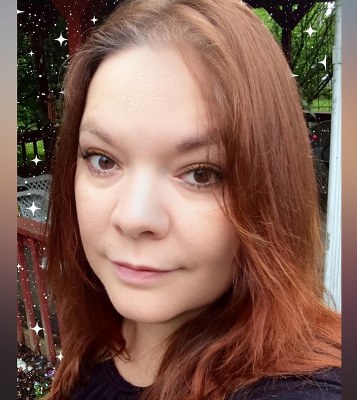
A Comfort & Company Mystery
L.A. private investigators Kit and Henry become entangled in the city's robust post-WWII occult trade when they're hired to track down Lillian, the estranged wife of a prominent physician, and her spellbinding "spirit" lover Tashin. Fresh from her training in judo and “dirty fighting,”
Kit poses as an eager recruit at a Hollywood cult run by the ambitious Reverend, while Henry takes on the city's séance circuit, which has reinvented itself in the wake of war.
Assisting them are Kit's psychiatrist lover Luca and her combat veteran brother Stanley, who offer their own brand of expertise in unraveling the tricks of the conmen.
Plunged into the strange and deadly world of mediums and gurus, Kit and Henry soon discover that surviving the spirit trade will take all of their cunning and a whole lot of luck.
Praise for The Birthday of Eternity:
"This atmospheric mystery is a must-read for fans of L.A. Noir and postwar historical fiction. Author A.D. Price deftly creates a vibrant postwar community of séances, psychics, mystics and their customers. . . . Readers can look forward to a jaw-dropping reveal in the book’s final act."
~ Mishka Rao for BestThrillers
"The action and dialogues, with the intelligent story-building and narrative, made this book THE PERFECT read."
~ Wajeeha Bashir for Book Nerdection. A Book Nerdection Must Read
"This is a captivating mystery rich in historical illustrations, con artists, and crime."
~ Aurora Eliam for Reedsy Discovery
"The Birthday of Eternity is a gripping tale of murder, mystery, and crime. A.D. Price's pageturner of a novel stuns you at every turn, with unexpected twists and curveballs you never see coming."
~ Pikasho Deka for Readers’ Favorite
The Birthday of Eternity Audiobook Sample:
Book Details:
Genre: Historical Private Detective Mystery
Published by: Indie
Publication Date: December 6, 2023
Number of Pages: 358
ISBN: 9798986893044
Series: Comfort & Company Book 2
Book Links: Amazon | Barnes & Noble | BookShop.org | Goodreads
Audiobook Links: Audible | Spotify | Barnes & Noble | Google Play | Chirp
Excerpt
PROLOGUE
DAIVIKA
(Preface, “Survival: My Journey to Enlightenment,” CoEB Press, 1948)
Happy New Year! Today, I begin the story of my death. The story of my death and my rebirth. The story of my journey to enlightenment. It won’t begin at the beginning. It won’t unfold in chronological order, or in subject order. Instead, it will flow in psychic order. An order marked by change—the before and the after—and its place in my eternal existence, in the circle with no beginning and no end.
Some in my position might shy away from sharing their story. They might prefer to keep their past a secret. However, from my experience—the experience that brought me to this point today—secrets destroy. They destroy trust, of course, but they also destroy hope. We can’t profess to love nature’s sunshine while keeping a part of ourselves in the darkness. Our past, our histories, are as much a part of our being as our beliefs and our actions.
Of course, it’s impossible to recall everything, and not all revelations are suitable for all audiences, but as far as common decency and memory will allow me, I will be truthful and open with my history. It’s the least I can do for my new friends and colleagues. Now more than ever, I need your trust. So, I will give you my secrets—some of them anyway.
And circle or not, I must start my story somewhere, and when I think about the past, I find myself returning to one moment, one place, one hot summer afternoon. It was a moment whose significance grew over time, like a soft mew swelling to a roar. It’s there I’ll begin the story of my life, a not-so-long-ago moment, fresh from death’s door.
Chapter 1
DAIVIKA
(Excerpt from “Survival: My Journey to Enlightenment.” CoEB Press, 1948)
Death, as a concept, bubbles up often in my current existence, but in my previous life, I did my best to keep the topic at bay, to push down my fears and ignore any pain. Months after the war’s end, I was still rationing my sadness, still offering fake smiles and unearned laughs.
That began to change with the death of my grandmother. Days before, she had taken a bad fall and her recovery had been fitful. I dropped by the hospital once or twice, but on that last Sunday, I canceled my planned visit and attended one of my husband’s archery competitions instead. She passed during the night.
Gramma had always been the kind constant in my life—more giving than my mother—and her departure from this world was a blow to my defenses. Its full impact, however—my shame especially— didn’t hit me until later. Even then, as I first stood by her open grave under that scorching sun, dry martinis in ice-cold glasses were all I was thinking about.
In her will, Gramma instructed she be buried at Forest Lawn, in the Everlasting Love section, next to her beloved husband, my grandpa. He had succumbed to a stroke a few years earlier, and his demise rendered Gramma spiritually unbalanced. Or as she put it, without him by her side, her life had no joy. At the time, I didn’t associate Gramma’s spiritual imbalance with a literal imbalance, the type of vertigo that caused her to misjudge a step, take a spill and break her hip, but the connection seems obvious to me now.
I also see now the deep imprint that my grandparents’ long and loving marriage left on my psyche. My parents’ marriage was fragile and my own romances were flops. But Gramma and Grandpa’s bond truly was everlasting—in life and beyond. Who doesn’t yearn for that?
No doubt that if my native Californian Gramma had been in charge of the matter, her burial would have taken place on a rainy dawn in winter. As it turned out, however, the fates preferred a cloudless afternoon in July. The night before, a Santa Ana wind had blown in, delivering a day of gusts so hot and dry they all but set fire to the lungs. The service at the Wee Kirk o’ the Heather Church had been reasonably well-attended, but most of the mourners, including my husband, skipped the burial. While immaculate and stubbornly green, the lawn the cemetery was famous for had absorbed the wind’s heat, making standing graveside more hellish than heavenly.
The minister-for-hire went through his rituals as quickly as was socially acceptable. But as he was delivering his final words over Gramma’s coffin, the birds and insects of Forest Lawn went abruptly silent. I felt the silence more than I heard it, but I sensed instantly that something was off and something else was eminent. And just as that anticipation hit, the sky’s light dimmed and the air dulled. We had been plunged, midday, into dusk.
During the next few seconds, my ears started to ring, or rather, hum. My heart raced, and I gasped. Then I fainted. My knees gave out and I tumbled to the ground. I toppled just inches from the open grave, my left arm dangling over the side. I quickly recovered but when I opened my eyes, the world was tinged with red and the air that swirled around me was frigid. I could hear murmurs of concern and felt someone touching my back. Embarrassed, I struggled to my feet and assured everyone I was fine.
And for a time, I fooled myself into believing that I was fine. On the drive home from the cemetery, I heard radio bulletins describing the total solar eclipse that had just occurred in the Northern Hemisphere. Everything I had experienced during the funeral was unusual but explainable. A natural phenomenon.
Or was it? Was Gramma’s funeral occurring at the same time as a rare astronomical event a coincidence? Or had Fortuna influenced the scheduling somehow? What had I seen? What had I felt? Had I felt through that cold wind Gramma’s spirit heading for the Afterlife? Or was it the stirring of my own sorrow, blowing around me in warning? Or both?
Chapter 2
HENRY
With a thwap, the arrow struck the hay bale, missing the square target by an inch. A crow clattered in a nearby sycamore, and a muttered curse slipped from Hoyle Cooper’s mouth. By Henry’s estimation, the target, set up in a sunny spot between two gnarled olive trees, was about 40 yards away.
With all the studiousness you’d expect from a man who had earned the nickname “Doctor to the Stars,” Cooper pursed his lips and reached for another arrow in his quiver. “Just one more,” he said, eyes narrowed. Cooper inserted the arrow and drew back his bent arm like Sagittarius on the battlefield. Although Henry knew next to nothing about archery, he sensed that Cooper’s form was perfect. The arrow flew out and, in a blink, struck the target dead center.
“That’s more like it,” Cooper said, half to himself. The faintest of smiles creased his smooth, pampered face, and he turned to face Henry for the first time. He didn’t offer his hand, but nodded. “Mr. Richman. Thank you for agreeing to meet me here. I know it’s a little out of the way for you.” He gestured at the arrow-dotted target and started off toward it. “Don’t move an inch. I’ll be right back.”
“I understand the need for privacy,” Henry yelled to his prospective client as he strode off. The archery field, located in the Arroyo Seco, was only a few miles from his downtown office—a short drive on the new parkway—but its dusty roughness seemed a world away from his usual concrete haunts.
“I’m sure you do,” Cooper called over his shoulder. With one swoop, he grabbed the four spent arrows from the bale and dropped them into his quiver. He gestured again, this time to a trail behind Henry. “That way.”
Henry tugged at his fedora as he stepped onto the dirt path. Roughly outlined by rocks, it curved gently around some flowering chaparral, heading east up a slight incline. “Do you practice here often?”
“Every Monday and Saturday. And any other day I can get over here.”
“It shows.”
“Thank you,” Cooper said, joining Henry on the path, but keeping one striding step ahead. “I took up field archery a few years ago as a way to keep my mind and vision sharp. Then, I admit, it became a bit of an obsession.”
“Do you compete?” Henry said with a wince. His aging leather shoes offered little protection against the sharp rocks whose tips protruded out of the arroyo dirt.
“With the Roving Archers.”
“Where do they compete?”
“We’re part of the Southern California league, but we compete nationally,” Cooper said with a note of pride. “Like the World Series.”
“The team’s good?” Henry knew the answer would be yes, because that’s how men like Cooper conversed.
“Number one in the country,” Cooper gushed.
Henry half-smiled. “Congratulations.”
At last, they reached the apex, and Cooper stopped and nodded in the direction of some oak trees. “Let’s talk at the table.”
The rough wood table looked like it hadn’t hosted a picnic, or any other human activity, in a dog’s age. If Cooper wanted privacy, Henry thought, he couldn’t have found a better spot. With a rag plucked from his quiver, Cooper swept away pine needles and dried berries from the table’s benches, and Henry took note of the doctor’s powerful but smooth hands. “Sorry about the mess. I should have warned you to dress casually.”
Henry shrugged as he knocked dust from his hat.
Cooper dropped his quiver on the table top and collapsed on the closest bench, straddling it like a horse. Then he gestured toward the opposing bench and said to Henry, “Have a seat.”
Henry positioned himself directly across from the doctor, who had his hands folded across his chest. If Cooper had intended to make Henry uncomfortable, as rich clients often did, he had succeeded in spades. In the past, Henry might have resented the maneuvering and even retaliated for it, but these days he was content to play the long game. In a minute or two, Henry knew, the cocky Hoyle Cooper would be exposing his vulnerability to him, a stranger, and in that moment, Henry would hold all the power. “How can I be of help?”
“It’s my wife Lillian,” Cooper said, then added, “My soon-to-be ex-wife, I should say” Reaching inside his jacket, he pulled out some Pall Malls and offered the pack to Henry, who waved them off with a polite smile.
“Your ex-wife?” Henry repeated, as Cooper went through the motions of lighting a cigarette. Henry didn’t keep up with the town’s gossip, but Kit had mentioned seeing a publicity item about the starlet’s marriage to the much-older physician years before.
“That’s right. She left me in March and served me with divorce papers in April.”
“I’m sorry to hear that.”
“Thank you.” Cooper muttered, then took a deep drag on his Pall Mall. “If I’m being honest, the whole business took me completely by surprise.”
“In my experience husbands never see the bad things coming,” Henry said. Cooper grunted and tilted his head to exhale and stare into the distance. Henry gave him a few seconds, then broke the silence. “On what grounds is she suing you for divorce?”
At the word “divorce” Cooper snapped back to attention. “Unbelievably, on the grounds of incompatibility.”
“Why unbelievable?”
“Because she’s the one who changed, not me. If anyone should be suing on that basis, it’s me.”
“Changed how?” Henry blinked a few times and removed his glasses. Finding a fine layer of dust covering both lenses, he pulled a handkerchief out of his back pants pocket. Methodically, he began to rub the right lens.
“Where to begin?” Cooper placed his half-smoked cigarette on the table’s edge. He closed his eyes as though summoning the remains of his self-control, but said nothing.
Henry stopped mid-rub and raised his eyebrows. “How about the beginning of the end? Did she fall out of love with you?”
“That’s what she’s claiming. But there’s more to it than that.”
“There usually is,” Henry said, moving on to his left lens.
“A lot more. You have no idea.” Cooper looked down and bit his lip. In his discomfort, he seemed to have abandoned his cigarette.
Henry checked his watch. “Forgive me, Mr. Cooper, but if you want me to help you, you’ll need to give me a few more details. Did she fall in love with someone else?”
Cooper gave a barking laugh. “In a manner of speaking.”
Henry tucked the curved arms of his glasses behind his ears and stared expectantly at Cooper. The man had gotten rich off the indiscretions of Hollywood’s brightest stars, carefully hiding their abortions, venereal diseases, sterility or the real reason they had to split town from spouses and the gossip columnists. Maybe it had never occurred to him that one day, he’d be haunted by some of his own secrets.
At last, Cooper took a deep breath and continued, “Lillian’s grandmother Zinnie died last fall. She had a bad fall and a stroke—nothing unusual for someone her age. But she and Lillian had been very close. Almost like mother and daughter. In fact, I think Lillian loved Zinnie more than her own mother. At any rate, Lillian was devastated by her death. She barely ate or slept for a month afterward. It was like she was in a trance. I wanted to send her to a psychiatrist, but she said no. And she refused to take any medications.”
“Medications? You mean goofballs?” Henry said, his muscles tensing. He had his own opinions on the topic of goofballs.
“We don’t call them that, but yes, barbiturates. She refused to take them. I was nearing my wit’s end. When you’re in my line of work, you need a functioning wife. Then the wife of an old friend, Perriman—he’s my stockbroker—suggested we do a séance for Lillian. Alberta thought —
“Who thought?”
“Mrs. Perriman, Alberta, thought maybe an appearance from Zinnie might bring her out of her stupor. I was skeptical but desperate. So, I agreed to hire one.”
“A medium?”
“A so-called medium. Madame Zarzinzky.”
Henry interrupted. “Zarzinsky with two z’s?”
Cooper sneered. “Three fucking z’s. My friend’s wife claimed they had helped her cope after their son was killed in the war.”
“They helped?”
“It was a couple. The woman was the medium. The husband apparently led the group during the contact phase.”
“You didn’t attend the séance?”
“I wasn’t invited. But the couple dropped by the house for a preliminary consultation—as they called it.”
Henry nodded. “Sounds like they were pros, if they took the time for a reconnaissance mission. Where did this séance take place?”
“It was set up by someone Alberta Perriman knew, from her charity work. A producer’s wife, Sheila Seaver,” Cooper said with a dismissive half-shrug. “She’s a go-between of some sort. I admit I didn’t pay that much attention to the details.”
“I assume Zinnie made an appearance of some sort at the séance?”
Cooper gave a rueful smile. “Exactly what you’d expect. As Lillian described it, Zinnie spoke through the medium, mentioned a few personal details about Lillian. Just enough to be convincing.”
“But nothing that couldn’t be deduced from the consultation?”
“It was all obvious, except for a couple of tidbits that Lillian probably let slip during their first interview. But I’ll tell you, afterward, Lillian was transformed. She started eating again, going out, seeing friends. It was great at first.”
“Then?”
“Then she was introduced to Tashin.”
“Sorry?”
“Tashh,” Cooper said, then paused for effect, “Shinn. Also known as Lillian’s soulmate.”
“The other man.”
Cooper sneered. “He’s her other man in the Spirit World. Her soulmate. She calls him Tashin.”
“He’s a ghost?”
At the word “ghost” Cooper screwed up his mouth. “He’s a reincarnated spirit. That’s how Lillian described him. According to her, the two of them had been soulmates in previous incarnations. But in order to achieve perfect harmony with him in the Afterlife—I’m quoting here—she had to first divorce me.”
“Sounds convenient. And how did she meet . . .Tashin?”
“She refused to tell me.”
“Any guesses?”
Cooper shrugged. “She never wanted to discuss where she went off to, but she swore she wasn’t sleeping with anyone.”
“Did you believe her?”
“What choice did I have? Not that it mattered in the end. Wherever she was going, she was spending more and more time there. Then one day, she left and never came back.”
“Did she take anything with her?”
“A few clothes—only as much as would fit in a single suitcase. If you saw the size of her wardrobe, you’d know how strange that was.”
Henry nodded. Hollywood starlet or the wife of a rich, prominent doctor—either way, she’d be drowning in clothes and jewels. “That takes us to April. What’s going on now?”
“Now? I’m counter-suing her and naming Tashin as a co-respondent,” Cooper said, suddenly animated.
“You’re suing the spirit?”
“Please,” the doctor snarled. “He’s no spirit. He can’t be. There’s no way my gorgeous twenty-five-year-old wife left me for a bunch of stale hot air.” Anger rising, Cooper brought his fist down on the table. “That prick is as solid as this wood, guaranteed. I’d rather stick icepicks through my eyes than pay that whore a cent of alimony.”
Henry winced. If he had any sympathy for the man’s plight, it was quickly going out the window. “Let’s hope it doesn’t come to that.”
“Look, I’m asking you because I heard you were the best. The last guy I hired was on the payroll for a month and couldn’t even figure out where she was going, let alone who with.”
Cooper’s revelation didn’t surprise Henry, but knowing the target was clever and aware enough to elude surveillance didn’t thrill him either. “So, to be clear,” Henry said, “if and when I locate them, you want me to serve him?”
“Exactly. Find her and serve him.”
* * *
Traffic was still light when he pulled out of the park and headed west in the Studebaker. He had left Cooper sitting at the picnic table, tending to both his ego and a fresh Pall Mall. The doctor had promised to send over all the relevant details—address and phone number for the referring friend’s wife, Lillian’s photo and a description of her known haunts and habits—later that morning.
When the subject of Henry’s fees came up, Henry requested an outrageous retainer and, as was his practice when dealing with the wealthy, doubled his daily rate. Cooper accepted the sums without debate, not even flinching when Henry suggested a second investigator, his partner, might be needed to locate his ex-wife. Apparently gut-spilling about his marriage had taken a toll on Cooper’s bravado. Either that or doctors had a more casual relationship with their money than the studio executives and politicians Henry usually did jobs for.
By the time he had eased off the parkway and headed downtown, Henry already had his afternoon planned. The first pieces were starting to fall into place, but no doubt about it, the outlines of the puzzle were stranger than anything he had ever encountered.
KIT
“He’s not a real dog,” Kit said calmly into the receiver. “Okay, he is a real dog, but he doesn’t work here. He’s a model. A dog model. My partner—my human partner—and I are the company investigators. We’d be happy to—”
The caller—an older man by the sound of the voice—hung up, and Kit jammed the handset into its cradle with a loud sigh. When she had agreed to include Valentino’s photo in their Comfort & Company Yellow Pages ad, she had worried about disappointing clients expecting to see the dog in the office. And in fact, a couple of walk-ins had promptly walked out when Valentino failed to make an appearance. But what kind of nut would hire a dog to handle their private affairs?
And where was the new Girl Friday? Without consulting her, Henry had offered the job to his wife’s niece, who had graduated from the same business school as Kit and, according to Henry, was ready to start immediately. Kit was leery of hiring “family,” but Henry had assured her that his cousin-in-law’s daughter wasn’t really family. “She’s the daughter of Bea’s cousin,” Henry explained, “and she lives with her divorced mother.”
Though unconvinced, the evening before, Kit had confiscated an ancient writing desk and chair from the downstairs supply closet and tucked them into the office’s only free corner. The phone line barely reached the small desk, and picking up the handset from the worn-down swivel chair required a stretch. Hardly ideal, Kit thought, but it was the best she could do on short notice.
The niece, Clara, was supposed to start at eight that morning, but when Kit arrived at ten, the room was so stuffy she had to leave the door open to air things out. Annoyed and disappointed, Kit plunked down in the executive chair she shared with Henry and contemplated heading for MacArthur Park with her camera.
“Knock, knock.” A young woman stuck her head into the room and smiled at Kit. “Hi. Are you Miss Comfort?”
“I am. Come on in.”
A short redhead with a fireplug build hustled in, carrying a large, string-tie envelope. Her round-collared white shirt and pleated skirt—desert brown, the color du jour—looked like they had just been pulled from a Bullocks hanger, and her copper hair sported the extreme part and soft curls popular with the collegiate crowd. She repeated her smile and, extending the envelope toward Kit, said, “It’s from Dr. Cooper. Mr. Richman said I should give it directly to you.”
“You talked to Henry?”
“No, not directly. Mr. Richman met with our client, Dr. Cooper, at the archery field.”
“Archery field?”
“Dr. Cooper spends a lot of time there,” the redhead said, then added, “Shooting arrows.” Her voice was firm but girlishly high-pitched. Kit didn’t detect an accent, other than L.A. neutral.
“And you’re from?” Kit said.
“McMasters and Rice. The law firm? Over on Fifth.”
“I know it.” Kit knew McMasters and Rice and every other law office that specialized in divorce. Many of Henry’s best clients had ended up at one of them. Kit tapped an empty space on her desk. “You can leave that there. Mr. Richman should be here soon.”
“Thanks,” the redhead said, placing the envelope near the desk’s edge. She flashed another smile, then bit her lip.
“Anything else?” Kit noticed that while the secretary’s clothes were new, her brown pumps, with their creased leather and uneven heels, weren’t.
“Is it true you rescued a woman from some crazy Nazi orange farmers?”
Kit hesitated. The “truth” was something very different than the story carried in the city papers a few months before, the orange farmers being fifth columnists and more fanatical than crazy. But the true story wasn’t hers to tell, according to the War Department. Not at the moment anyway. “More or less,” she said at last.
“That’s . . . awe-inspiring.”
“Thanks. We just did what we had to.”
“Still, gosh, it took guts. More than most people have.”
“You’d be surprised what you’re capable of when a gun is pointed at you.” The redhead’s expression darkened, and Kit regretted the comment.
“I know, you must have been terrified.”
An awkward silence filled the room. “What did you say your name was?” Kit asked.
“Ruby O’Reilly,” the redhead said.
“Very nice to meet you, Ruby,” said Kit, imagining the moniker Henry would likely assign her: Ruby the Red.
“Oh, gosh, it’s been an honor to meet you, a real honor.” Ruby turned to leave, then paused, her attention caught by the dartboard hanging on the back of the half-open door. “If you’re looking for a secretary, I type 80 words per minute, shorthand 220 words per minute, and I know how to be discreet.”
“Thanks, but we just hired someone . . . I think,” Kit said, confused. They hadn’t advertised the position in the classifieds.
“Oh, well,” Ruby said, a little surprise in her voice, “if she doesn’t work out, you can reach me at the firm. I’m there Monday through Saturday, eight to five.”
“Thanks, I’ll keep that in mind.”
As she neared the threshold, Ruby said, “Should I close the door?”
“Please,” Kit replied and watched as Ruby grabbed the outer doorknob.
“Don’t forget to call if you need me,” Ruby repeated while pulling the door behind her. “Trinity 5, 5520.”
The door closed, and Kit sat back in the executive chair, muscles tense. To relax, she closed her eyes and breathed slowly and deeply, in and out, in and out. It was a trick taught to her by Luca, her brother’s former shrink and her current, what, beau? Lover?
On her fourth and final exhale, she opened her eyes and looked off to the right at the now-closed door. Pinned to the dartboard, she saw, was a note. She got up for a closer look. The paper was from a steno pad and the scribbled words read: “Changed my mind about the job. Office is too small. And where’s the dog?! Clara.”
* * *
Weather conditions weren’t ideal for picture taking—the sun was too bright and pervasive—but after a morning of frustration and nonsense, Kit needed an excuse to head outside. She often used photography as her escape hatch, and she wasn’t particular about her subjects. To her, a loose brick could be just as eye-catching as a beautiful bloom, a bum on a bench just as visually stimulating as a fur-draped starlet. Henry would tease her about her aesthetic choices and invent captions for her more obtuse shots: “Fire Hydrant with Dog Pee” or “How Green Was My Shoe?” But Kit wasn’t offended or deterred by the opinions of others. Photography was her soul balm. It took her away from racing thoughts and self-doubts, from bad memories and future fears.
And today, she needed that balm to push memories of the man she had killed to the back of her mind. Today, Ruby O’Reilly had been the one to unleash her painful thoughts. But sometimes all it took was the smell of oranges or the feel of dirt to return her to the scene, the orange grove where she shot and killed a man named Carl. She had pulled the trigger and fired the bullet that ended his life. He had given her no choice—she wasn’t ambivalent about her motive—but the power the little derringer had given her still haunted her. With a gun, she thought, it was too easy to become a killer, and too easy to play savior.
In one second, so much of her life had changed. Not her waking, everyday existence, but her silent, inner life. Before the shot, the dynamics of the partnership had been clear—Henry had been in charge—but after it, the lines of authority had blurred. Henry owed her his life, after all, and Henry took his debts seriously. Would he repay her with the two things she craved most from him: respect and trust? She yearned for both, but wondered if she had truly earned them yet. Was she worthy and capable? On many days, she had her doubts.
For a hot weekday afternoon, MacArthur Park was surprisingly crowded, making picture taking a challenge. She preferred to photograph faces, to select one or two and create a portrait. Usually she would ask permission, but sometimes she took them surreptitiously. The candid photos were always more interesting than the posed, permitted ones, but given her profession, she didn’t want her motives to be questioned, possibly through violent means.
According to Henry, before the war, the park had been magnificent—a destination, not a pass-through—but started going downhill a few years back after William Randolph Hearst had forced a name change on City Hall. Apparently, Hearst, who dreamt of sending General MacArthur to the White House, had calculated that having a park named after the war hero was good publicity, so, poof, Westlake Park became MacArthur Park. Kit suspected the park’s decline had more to do with the decision to split it in two, with Wilshire Boulevard running unapologetically down the middle, than with the dubious politics of General MacArthur, but she never argued civics with Henry.
Despite Henry’s grumblings, Kit loved strolling through the park. The breeze off the lake, while slight, offered some relief from the heat, and the paddling swans made for good backdrops. Along with the swans, the park boasted a collection of “florid fly-by-nights,” as Henry would say, some of whom were featured in Kit’s portrait portfolio. She was on the lookout for one of these when she noticed some tourist types clustered around a man sitting on a lake-facing bench, a small table at his knees.
The young, dark-haired man had a lively game of three-card monte going, his hands moving the king, ten and two of clubs around so fast on the table that none of his opponents had a chance to select the correct card. Hand after hand, Kit watched him play, always winning against the eager passersby. After each victory, he would slide his booty into a tin can, grinning with undisguised joy.
Fraud lay at the heart of many of Comfort & Company’s cases, and Kit had learned from Henry that most con games, including three-card monte, were simple in design but complex in detection. The mind perceived what it wanted to see, what experience had taught it to see, never what was actually going on.
As she raised her camera to take the enterprising young man’s picture, she wondered what drove people to these games, what need in them did they fulfill? Hope? The belief that next time, the outcome would be different? Or maybe it was the opposite, maybe they took a strange pleasure in the certainty of their losses. Whatever the need, the marks kept coming, and the conmen kept playing.
Kit devoted the last shots of her roll not to the young man with the dazzling smile and devilish hands but to his audience—the vacationing families, office workers, retirees and bums who had gathered to give testament to his skills.
She knew the conman’s sleight-of-hand deception could never be captured in a photograph, but she hoped the reactions of his targets would be.
***
Excerpt from The Birthday of Eternity by A. D. Price. Copyright 2024 by A. D. Price. Reproduced with permission from A. D. Price. All rights reserved.

A native of Washington, D. C., A. D. Price is an Emmy-winning screenwriter and author. Her publications (as Amy Dunkleberger) include educational books and feature articles on historical and arts-related subjects.
In 2022, she published After the Blue, Blue Rain, her first novel and the first book in her Comfort & Company mystery series. She lives in Los Angeles with her husband and two dogs.
Catch Up With A. D. Price:
www.ADPricebooks.com
Goodreads
BookBub - @adpricebooks
Instagram - @adprice22
Threads - @adprice22
Facebook - @adpricebooks
YouTube - @ADPrice
Tour Participants:
Visit these other great hosts on this tour for more great reviews, interviews, guest posts, and opportunities to WIN in the giveaway!
ENTER FOR A CHANCE TO WIN!
This is a giveaway hosted by Partners in Crime Tours for A. D. Price. See the widget for entry terms and conditions. Void where prohibited.

